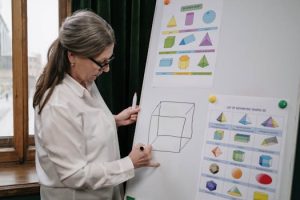The Importance of Civic Education in a Polarized World
In today’s world, where political and social divisions seem to be at an all-time high, the importance of civic education cannot be overstated. As citizens, it is our responsibility to be aware and informed about the systems and structures that govern our society. Civic education plays a crucial role in shaping responsible and engaged citizens, and in a polarized world, it becomes even more essential. In this article, we will explore the importance of civic education and how it can help bridge the gap in a polarized world.
The Current State of Polarization
Polarization refers to the deep divides that exist within societies, particularly on political and social issues. In recent years, these divisions have been growing, and the impact is visible in almost every aspect of our lives. From debates on social media to political discourse, polarization has taken center stage.
There are various reasons behind this polarization, including economic factors, media influence, and personal biases. But one significant factor is the lack of civic education. In a polarized world, where people are quick to make assumptions and hold on to their beliefs, the absence of civic education only widens the divide.
What is Civic Education?
Civic education, also known as citizenship education, is the process of educating individuals on the rights and responsibilities of being a citizen. It covers various topics, including government structures, democratic processes, and the role of citizens in society. The aim of civic education is to develop engaged and responsible citizens who are actively involved in their communities.
The Importance of Civic Education in a Polarized World
In a polarized world, the need for civic education becomes even more crucial. Here’s why:
Creating Informed Citizens
One of the main objectives of civic education is to provide individuals with the information they need to make informed decisions. In a polarized world, where misinformation and biased news sources are rampant, the importance of being an informed citizen cannot be stressed enough. Through civic education, individuals can learn to critically analyze information and form their opinions based on facts.
Promoting Understanding and Tolerance
Civic education also promotes understanding and tolerance among individuals. It teaches people to respect different perspectives and encourages open-mindedness. In a polarized world, where people often shut down opposing viewpoints, this is crucial in fostering an environment of dialogue and mutual respect.
Bridging the Gap
Another essential aspect of civic education is its ability to bridge the gap between individuals. In a polarized society, where people are divided along various lines, civic education can bring people together by highlighting the values and principles that unite us as citizens.
Implementing Civic Education
To reap the benefits of civic education, it must be effectively implemented in schools and communities. It should be incorporated as part of the curriculum, from elementary school to higher education. Furthermore, community-based initiatives and programs can also play a crucial role in promoting civic education.
Civic education should also be inclusive, addressing issues of diversity and social justice. It should promote equal opportunities for all and teach individuals to be respectful of differences.
The Role of Technology in Civic Education
In today’s digital age, technology can play a vital role in promoting civic education. With the rise of social media and online platforms, information is readily available, and it’s crucial to teach individuals how to navigate and critically analyze this information. Technology can also be used to create interactive and engaging learning experiences for individuals of all ages.
In Conclusion
In a polarized world, the importance of civic education cannot be ignored. It is a tool that can help bridge the gap and promote understanding among individuals. By creating informed, tolerant, and engaged citizens, civic education can contribute to building a more harmonious and inclusive society. It is essential that we recognize the significance of civic education and work towards implementing it effectively in our schools and communities.








